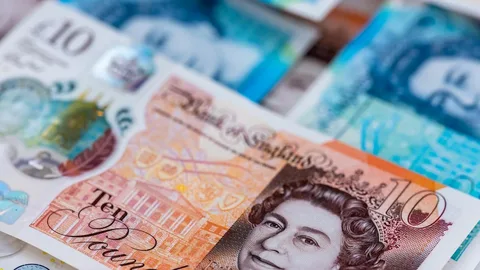Pound Rate Today in Pakistan: Pound to Pakistani Rupee Rate Today UBL

Pound Rate Today in Pakistan: Pound to Pakistani Rupee Rate Today at UBL
Introduction to Pound to Pakistani Rupee Exchange Rate
The exchange rate between the British Pound (GBP) and the Pakistani Rupee (PKR) plays a significant role in international trade and finance. Understanding the Pound Rate Today in Pakistan dynamics of this exchange rate is crucial for businesses, investors, and individuals involved in transactions between the two countries.
Understanding the Pound Rate Today in Pakistan
The Pakistani Rupee exchange rate is influenced by various domestic and international factors. Economic indicators such as inflation, interest rates, and GDP growth rate affect the value of currencies. Political stability and government policies also play a vital role in determining exchange rates.
Pound to Pakistani Rupee Rate Today at UBL
UBL, or United Bank Limited, is one of the leading commercial banks in Pakistan. It offers various financial services, including currency exchange. The Pakistani Rupee rate at UBL is determined based on market conditions, demand and supply dynamics, and the bank’s pricing strategies.
Impact of Global Events on Pound Rate Today in Pakistan
Global events like Brexit can significantly impact the Pakistani Rupee rate. The uncertainty surrounding Brexit negotiations and the future relationship between the UK and the EU have led to the Pound volatility. Additionally, global economic conditions, such as changes in oil prices and geopolitical tensions, can affect currency markets.
Analyzing Historical Trends of the Pound Rate in Pakistan
Historical data can provide insights into the past performance of the pound-to-p Pakistani Rupee rate. Analyzing trends and patterns can help forecast future movements and identify potential risks and opportunities.
Forecasting Pound Rate in Pakistan
While predicting exchange rates with absolute certainty is challenging, financial analysts and experts often provide forecasts based on economic indicators and market trends. However, it’s essential to consider that exchange rates are subject to fluctuations due to unforeseen events and changes in market sentiment.
Strategies for Dealing with Pound Rate Fluctuations
Businesses and individuals can adopt various strategies to manage the risks associated with exchange rate fluctuations. Hedging techniques, such as forward contracts and options, can help mitigate risks for businesses engaged in international trade. Similarly, investors and travellers can consider diversifying their currency holdings or using financial instruments to protect against adverse exchange rate movements.
Importance of Monitoring Pound Rate Today in Pakistan
Monitoring the Pakistani Rupee rate is crucial for importers and exporters, as fluctuations in exchange rates can impact the cost of goods and profitability. Understanding currency movements can help investors make informed decisions about asset allocation and portfolio management. Likewise, travellers can benefit from monitoring exchange rates to optimize their foreign currency exchanges and expenses.
Conclusion
The Pakistani Rupee exchange rate is influenced by many factors, including economic indicators, global events, and market sentiment. Understanding these dynamics and adopting appropriate risk management strategies Pound to Pakistani Rupee Rate Today UBL is essential for businesses, investors, and individuals engaged in transactions between the UK and Pakistan.
FAQs:
- How often does the Pound-to-p Pakistani Rupee exchange rate change?Due to market demand and supply dynamics, exchange rates can fluctuate multiple times throughout the day.
- Can I predict future movements in the Pound to Pakistani Rupee rate?While forecasts provide insights, predicting exact exchange rate movements is challenging due to the complex nature of currency markets.
- Does political stability in Pakistan affect the Pound to Pakistani Rupee rate?Yes, political stability can influence investor confidence and impact exchange rates.
- What are the advantages of hedging against currency fluctuations?Hedging can help mitigate risks and provide certainty in financial transactions, especially for businesses involved in international trade.
- Is exchanging currencies at a bank or a currency exchange bureau better?Both options have their pros and cons. Banks may offer more security and convenience, while exchange bureaus might provide competitive rates.




